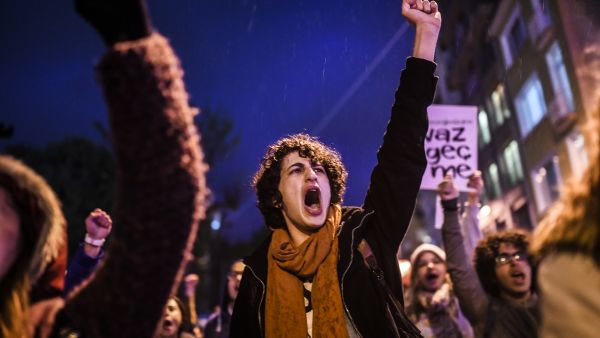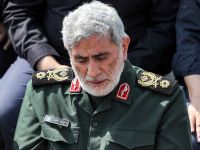Turkey strongly rejected criticism of its referendum after European election observers said the vote was conducted on "an unlevel playing field," and the two sides did not have equal opportunities to campaign.
On Monday, President Recep Tayyip Erdogan slammed the election monitors' assessment, saying that "this country has carried out the most democratic election - something not one country in the west has ever experienced."
"Know your limits," Erdogan warned observers from the Organization for Security and Co-operation in Europe (OSCE) and the Parliamentary Assembly of the Council of Europe (PACE).
Speaking in front of the presidential palace in Ankara, as jubilant supporters cheered, Erdogan also reaffirmed his willingness to reintroduce the death penalty, vowing to hold referenda on capital punishment as well as on Turkey's bid to join the European Union.
As the crowd chanted "death penalty, death penalty," the president said he was unconcered about the stance of the west on capital punishment. "I only pay attention to what my people say, and what Allah says."
Erdogan had previously indicated that if a constitutional amendment on the death penalty failed to pass in parliament with the necessary majority, he would call for another referendum to bring it back.
Capital punishment was abolished in Turkey in 2004. Its reintroduction would put an end to the country's prospects of EU membership.
Erdogan claimed victory in the hours after polls closed in Sunday's vote, as unofficial results showed 51.4 per cent of voters had approved reforms that would give his office sweeping new powers, and reduce the role of parliament.
The opposition has vowed to challenge the results, and even called for them to be annulled.
The Turkish Foreign Ministry said remarks by the OSCE commenting on the referendum campaign prior to election day on Sunday showed it was "biased."
The opposition complaints hinge on the electoral commission's decision, made while voting was well under way, to allow ballots that were not stamped with an official seal to be counted as valid. The seal is meant to prevent fraud.
Cezar Florin Preda, head of the observers' delegation from PACE, criticized the decision to count the unstamped ballots, saying this "removed an important safeguard."
"In general, the referendum did not live up to Council of Europe standards. The legal framework was inadequate for the holding of a genuinely democratic process," said Preda, in Ankara.
Turkey is a member of the Council of Europe, a human rights organization.
The head of the election mission from the OSCE said voters were left ill-informed about what they were voting on, in part because of the unfair allocation of media time and information on the content of the vote.
"The state took no steps to ensure voters were provided with impartial information," said the OSCE's Tana de Zulueta, adding that Erdogan's side was given "preferential treatment" by the media.
Civil society was unable to properly participate in the referendum campaign and the state of emergency put in place after a failed coup attempt last year was used to restrict the freedom of assembly and expression, the PACE mission said.
Dozens of journalists are in jail and media outlets have been shuttered since the coup attempt.
However, the observers refused to be drawn on whether the lack of a level playing field had affected the close result.
"What the outcome might have been goes well beyond our mandate ... it is usually up to the courts or history to judge," said de Zulueta.
The chairman of the election commission (YSK), Sadi Guven, hit back at criticism of the voting process and the decision to count the unstamped ballots.
He said there was nothing wrong with the ballots and that the stamps had not been placed due to "mistakes by the polling station workers." There was no fraud, he insisted.
The opposition parties, People's Republican Party (CHP) and pro-Kurdish Peoples' Democratic Party (HDP), said they would challenge the result.
CHP deputy leader Bulent Tezcan said the election commission had cast doubt over the legitimacy of the tight election.
"The only decision that will calm the public, in legal terms, that is that the election is cancelled by the YSK. What really matters is that this election is cancelled," Tezcan said.
While some of the more far-reaching changes in Turkey would only come into effect after the next election - such as the power to issue decrees and appoint and dismiss ministers - others could into effect more quickly.
Erdogan will be able to rejoin the ruling Justice and Development Party (AKP), ending Turkey's tradition of a non-partisan president. He would presumably seek to be party chief again.
Shabtai Gold








